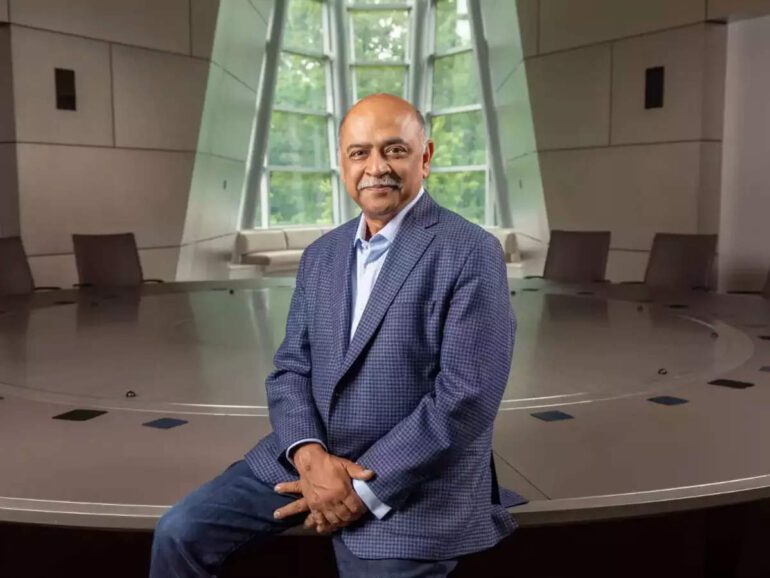TL;DR:
- IBM CEO Arvind Krishna emphasizes that declining working-age populations necessitate the use of technology to handle mundane tasks, enabling humans to focus on higher-value work.
- Former Google CEO Eric Schmidt predicts a shortage of humans for jobs due to declining birth rates, but believes AI can fill the gaps and enhance efficiency.
- AI is estimated to expose around 300 million full-time jobs to automation, while also creating new opportunities and increasing productivity.
- The potential societal benefits of AI should be weighed against the challenges faced during previous technological revolutions, which resulted in both progress and enduring costs.
- MIT economist Daron Acemoglu advocates for a stronger labor relations movement to ensure workers have a voice in the era of AI.
- OpenAI CEO Sam Altman rejects the notion that AI will eliminate jobs and purpose for humans, but acknowledges the need for public policy to adapt to the socioeconomic changes it brings.
- Concerns over AI’s impact have led some tech leaders, including Acemoglu, Elon Musk, and Steve Wozniak, to call for the cautious development of powerful AI systems.
- The co-founder of crypto startup Worldcoin envisions their platform as a potential mechanism for distributing universal basic income in a future with significant job displacement.
- IBM plans to reduce hiring in non-customer-facing roles, with expectations that AI and automation may replace up to 30% of these positions within five years.
Main AI News:
IBM CEO Arvind Krishna, in an effort to assuage concerns regarding job displacement caused by artificial intelligence (AI), highlights the diminishing working-age populations around the world. Krishna emphasizes that relying on human labor for mundane tasks, which can be efficiently carried out by AI, is not a viable option. Instead, he believes that leveraging technology for routine work will enable individuals to engage in higher-value activities. Furthermore, Krishna predicts that AI will contribute to job creation, particularly in sectors that generate more value.
These sentiments echo those expressed by former Google CEO Eric Schmidt at the Wall Street Journal CEO Council Summit in London. Schmidt emphasizes the demographic realities that point to a scarcity of human resources for job vacancies in the foreseeable future. According to Schmidt, this shortage is expected to persist for at least three decades due to declining birth rates.
While acknowledging that some job losses may be inevitable in the short term, Schmidt argues that AI will ultimately have a positive impact. By enhancing efficiency and filling gaps in shrinking labor markets, AI can replace professions that are becoming increasingly difficult to staff. However, the implementation of AI also carries risks, as it could potentially automate the equivalent of 300 million full-time jobs, according to Goldman Sachs.
The potential societal benefits of AI in the long run, coupled with the challenges it poses in the near term, are reminiscent of previous technological advancements. MIT economics professor Daron Acemoglu highlights the Industrial Revolution as an example, noting that it led to progress but also resulted in high and enduring costs. These costs included harsher working conditions, lower wages, deteriorated health and living standards, reduced autonomy, and increased hierarchy. Recognizing the threat posed by AI to many white-collar jobs today, Acemoglu advocates for a robust labor relations movement in the United States. He suggests a collaborative approach between the public and private sectors, as seen in Germany, rather than the more contentious company-centric model prevalent in America.
Recently, Acemoglu joined Tesla CEO Elon Musk and Apple co-founder Steve Wozniak in signing an open letter calling for caution in developing AI tools that surpass the capabilities of OpenAI’s GPT-4. The signatories express concerns about the potential automation of all jobs, including fulfilling ones, the development of nonhuman intelligence surpassing human capabilities, and the risk of losing control over civilization. They stress that such decisions should not be delegated solely to unelected technology leaders. Instead, the development of powerful AI systems should proceed only when their positive effects and manageable risks are assured.
While visiting European leaders, OpenAI CEO Sam Altman rejects the notion that AI will render humans purposeless or jobless. He firmly believes that such a perspective is unfounded. Altman acknowledges that AI will significantly transform society, with software capable of thinking and learning assuming an increasing share of human work. This shift, according to Altman, will transfer more power from labor to capital. He emphasizes the need for public policy to adapt accordingly; otherwise, the majority of individuals may find themselves worse off in the future.
Altman, who co-founded crypto startup Worldcoin in 2019, envisions a scenario where excessive job displacement prompts governments to implement a universal basic income. In this event, Worldcoin aims to facilitate the distribution of these payments, leveraging its identification system based on eyeball scans. Currently, the company focuses on verifying human identity online, differentiating humans from AI bots. Worldcoin recently secured $115 million in a Series C funding round.
In light of these developments, Krishna announces IBM’s intention to slow down or pause hiring for non-customer-facing positions, which currently account for approximately 26,000 employees. He predicts that over the next five years, AI and automation could potentially replace up to 30% of these roles.
Conlcusion:
The perspectives of tech leaders highlight the complex relationship between artificial intelligence, jobs, and societal impacts. While AI presents opportunities for increased efficiency and productivity, it also poses challenges, such as potential job displacement. Striking a balance between technological advancement and human well-being will require strong labor relations, adaptive public policy, and careful development of powerful AI systems. The market should be prepared to navigate these changes by embracing collaborative approaches, considering the long-term effects on job markets, and fostering an environment that promotes both innovation and the welfare of workers.

